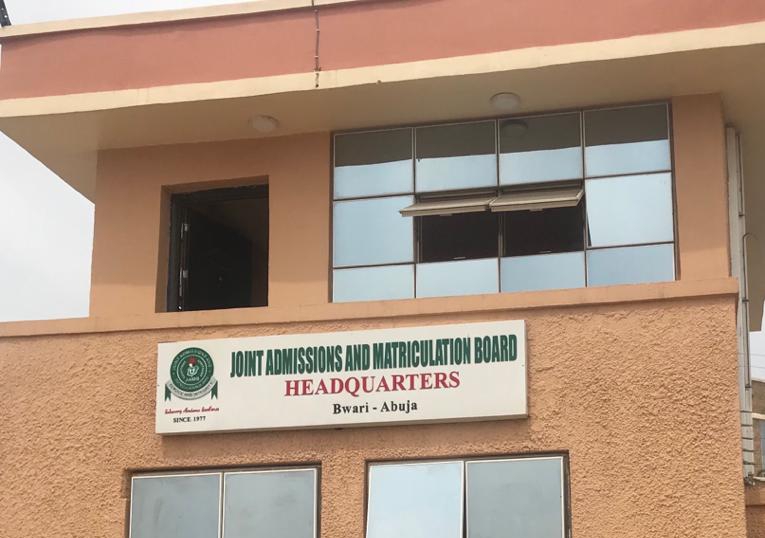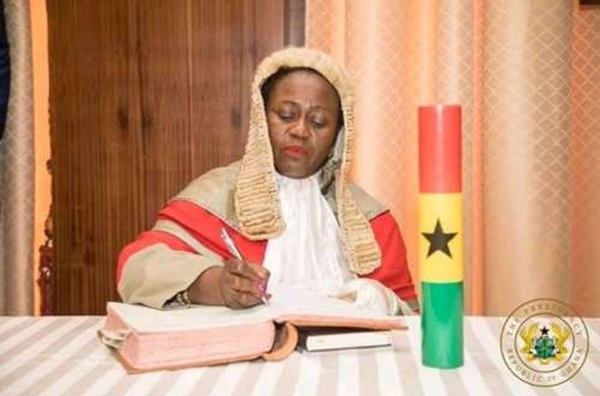Tinubu, other African leaders canvas homegrown solutions to continent's economic challenges
Economic managers and political leaders must adopt homegrown solutions to tackle the economic challenges confronting the African continent. This was the submission of stakeholders at the 32nd African Export-Import Bank (Afreximbank) Annual Meeting, which was held in Abuja, on Friday.
Meanwhile, President Bola Ahmed Tinubu conferred the President of African Export-Import Bank (Afreximbank), Prof. Benedict Oramah, with the Grand Commander of the Order of the Nigeria (GCON) at the event.
Oramah, who is the fourth president of the continental bank, steps down on Saturday, June 28, after 10 years of service. Delivering the keynote at the event, President Tinubu called African leaders to renew their commitment to building a resilient and united continent capable of delivering shared prosperity for its people. He stressed that Africa must strengthen its institutions, sharpen its capabilities, and harness its collective will to drive meaningful development.
According to him, collaboration and coordination among African nations are now more critical than ever in forging strong alliances that would promote economic growth across the continent.
He stated that there was a need for inclusive empowerment, urging leaders to invest in the potential of African youths, women, and entrepreneurs as vital forces for building a prosperous and self-sustaining Africa.
Tinubu commended Afreximbank and its President, Oramah, for providing consistent and visionary leadership that has significantly advanced Africa’s economic architecture.
He noted that under Oramah’s stewardship, Afreximbank has grown into a critical institution that continues to play a transformative role in Africa’s development journey.
He revealed that Nigeria has been a major beneficiary of the bank’s interventions, with over $52 billion invested in various sectors to support development and enhance productivity.
He particularly lauded the Pan-African Payment and Settlement System (PAPSS) as a groundbreaking initiative championed by Afreximbank under Oramah’s leadership, describing it as a transformative milestone in Africa’s financial integration.
The President urged African countries to embrace PAPSS fully, stressing that such innovative tools are essential for deepening regional trade, strengthening collaboration, and reinforcing the continent’s resilience in the face of global economic uncertainties.
Vice President of Tanzania, Dr. Philip Mpango, warned that the global economy was becoming increasingly fragile and uneven, with each country experiencing different shocks.
He called on African countries to consolidate their economic structures and build resilience across the region. Mpango emphasised the importance of ensuring sound macroeconomic fundamentals, warning that Africa must not continue importing food when it can feed itself. He urged greater collaboration to curb food and energy inflation, which he described as major sources of instability.
The lessons from ongoing global turbulence, he said, should compel Africa to break its disconnection and pursue regional integration more deliberately.
He also stressed the importance of harnessing the talents of Africa’s youth, calling for deliberate efforts to prepare and empower young people for leadership roles across the continent.
Nigeria’s former president, Olusegun Obasanjo, revealed that Nigeria was paying over $3.5 billion yearly in external debt service when he assumed office in 1999, an economic burden he described as worse than inheriting a country with no budget at all.
Obasanjo described the debt crisis as dire, driven by exorbitant interest rates and severe penalties that pushed Nigeria into a debilitating cycle of stagnation.
He said the only viable escape from this trap was to pursue debt relief, an effort that became a central goal of his administration. Recalling the gravity of the situation, he said it was not just the debt but the internal dysfunctions, particularly widespread government waste and entrenched corruption that posed the greatest obstacles to progress.
“There is a lot of waste in government. If you look inward, you’ll see it. Once you reduce or eliminate it, development becomes achievable,” he stated.
Obasanjo recounted how his government’s anti-corruption drive was met with stiff resistance, noting that one of his boldest initiatives was the introduction of a landmark anti-corruption bill, which languished in the National Assembly for 18 months as lawmakers feared the implications.
“They watered it down because they said if the bill passed in its original form, they would all go to jail. “Despite the delay and opposition, the eventual passage of the bill laid a foundation for both domestic and international resource mobilisation, helping Nigeria move from an ‘empty box’ to a position where development could be realistically funded,” he said.
He maintained that Africa was not lacking access to development finance, saying what was missing was the political will to create the right conditions for sustainable growth.
According to him, unlocking the continent’s potential hinges on cutting waste, curbing corruption, implementing sound policies, and creating an environment that attracts investment.
Former president Nana Addo Dankwa Akufo-Addo of Ghana stressed that Africa must look inward for solutions, rather than relying on external financial relief.
He lamented that key institutions envisioned to anchor Africa’s financial independence, including the African Central Bank, the African Investment Bank, and the African Monetary Fund remain largely dormant and far from operational reality.
According to him, unless these institutions are empowered and transformed to deliver on their mandates, Africa would continue to struggle with limited access to transformative finance.
Earlier, Minister of Finance and Coordinating Minister for the Economy, Wale Edun, urged African leaders to face the future with confidence and determination, emphasising the urgent need to build capacity not just for planning, but for effective execution.
Edun underscored that while having a clear strategy is essential, true leadership is measured by the ability to implement those strategies successfully to deliver real outcomes.
He said the time has come for Africa to rise into an era of shared prosperity and inclusive growth, noting that achieving this vision demands deliberate cooperation across the continent.
According to him, African nations must work together to unlock the full potential of private sector investment, which remains key to generating sustainable jobs and economic transformation.
On his part, the Chairman of Heirs Energy, Tony Elumelu, attributed his successful incursion into the energy sector to the support offered him by the African Export and Import Bank (Afreximbank).
Elumelu lauded the pan-African bank, led by Prof. Benedict Oramah, for offering support to African entrepreneurs. Elumelu argued that revolutionising African development rests on the availability of electricity.
He said: “AI and all the other things that are built on it cannot happen if we do not fix electricity. We must keep our eyes on improvement in access to electricity as the foundation that we need to develop our continent.”
Elumelu revealed that when he opted out of banking and diversified into energy, he acquired OML 11 and 17, which was deemed too much to be entrusted into the hands of the private sector by the Muhammadu Buhari administration.
Going down memory lane on how Afreximbank came to his aid, Elumelu explained: “After pulling our resources together, we had a shortfall of $750 million. We then ran to Afreximbank, which graciously offered us $600 million while the African Finance Corporation provided the remaining $150 million.”
The chairman of the United Bank for Africa (UBA) Group disclosed that the asset has grown to become transformative, not just for the investors, but for the continent.
He stated that Heirs Energy now produces over 58,000 barrels of crude oil, attributing the feat to the support of Afreximbank. Highlighting Afreximbank’s role in making resources available to entrepreneurs in Africa, Elumelu said the continent was in dire need of capital to speed up the development.
“Our commitment, the obligation, and the support we got from Afreximbank were far ahead. So, people should empower institutions like Afreximbank to enable them to support entrepreneurs. We need more entrepreneurs in Africa doing the kind of thing we and others are doing to help our people,” he said.
Elumelu insisted that stakeholders must work together for the good of the continent. As Africa scampers for foreign investment, Elumelu maintained that investments needed to develop Africa are within the continent, saying African governments must create an enabling environment for local investments to thrive. He also lauded the current Nigerian government for allowing local investors to acquire assets in the oil and gas sector.
“So, we are beginning to see a government that understands business and a government that does not feel threatened by business. Because what is good for business is good for the citizens. The best way to attract investors is to support your domestic investors,” he noted.










